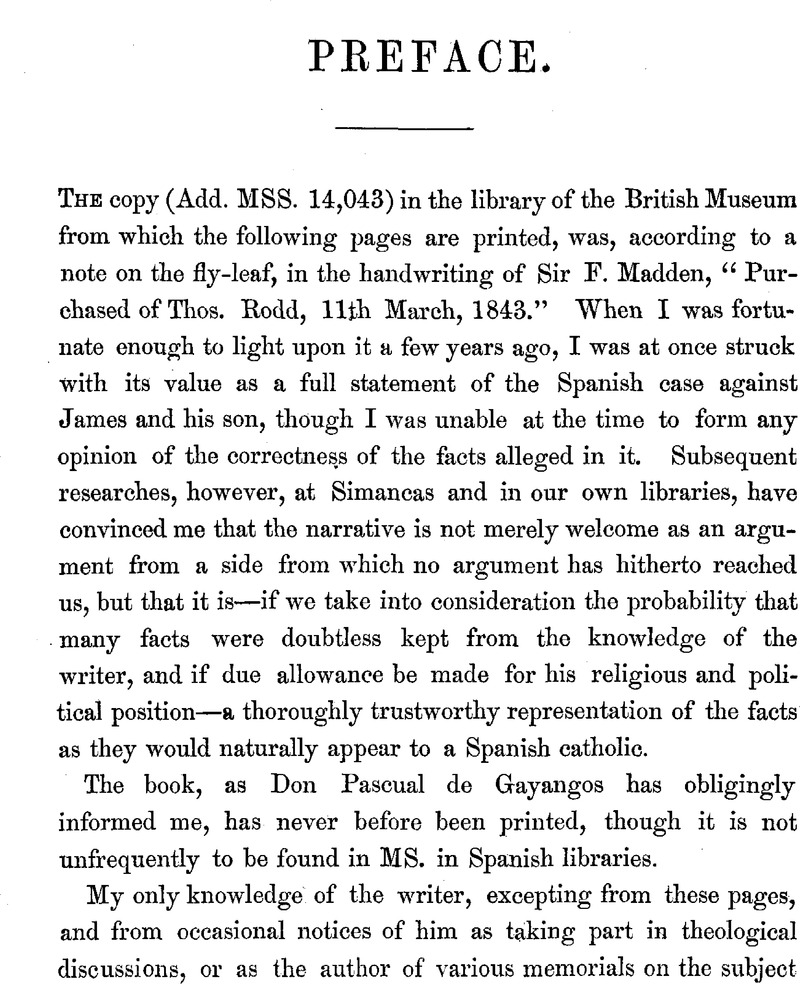No CrossRef data available.
Article contents
Preface
Published online by Cambridge University Press: 24 December 2009
Abstract

- Type
- Preface
- Information
- Copyright
- Copyright © Royal Historical Society 1869
References
page vi note a I give the extract as it stands, though there is evidently something wrong with it.
page vii note a In the key to the nicknames in the Private Memoirs of Sir Kenelm Digby, Sir Harris Nicholas appended to the “Mufti of the Egyptians” the note “Query—the Archbishop of Toledo,” and this explanation, natural enough to any one who has not examined the question closely, has recently received some countenance as having been adopted by Mr. Bruce in his preface to Sir K. Digby's Voyage, recently published by him for this Society. I have no doubt, however, that it is a mistake.The Archbishop of Toledo never appears upon the stage of public affairs after the fall of Lerma and his son, in any of the various narratives of proceedings connected with the marriage with which I am acquainted; and his absence is easily explained if, as I suppose, he was still that Bernardo de Sandoval y Roxas who was a relative of Lerma, and received his promotion from the fallen favourite. On the other hand, the indications in Sir Kenelm's memoirs point in a very different direction. Bristol, he says, understood that Sir Kenelm “was very welcome to the Mufti for thestrait friendship that he had with some of his nearest kinsmen in Ionia, from whence he mas.” Ionia means Italy, and the person in question being an Italian, could be no other than De Massimi, the Papal Nuncio.
page x note a Proceedings and Debates in 1621, ii. 237.


